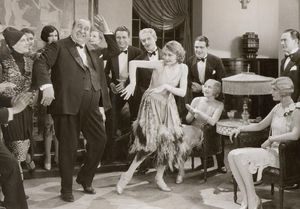By Mike Durall
In Salina in 1925, any person or persons engaging in disorderly or unbecoming conduct at local dances could be removed by a supervisor of the Board of Public Welfare, or by any police officer. Perhaps this was due to the “flapper era” when women wore short skits (knee-length), bobbed their hair, listened to jazz music, and maybe snuck an illegal drink during Prohibition.
It was also against the city ordinance to be caught loitering, loafing, or using obscene language at the Post Office. Maybe the Post Office was warm during cold weather, and that’s where lay-abouts gathered.
The 1925 book titled Revised Ordinances of the City of Salina contains thousands of ordinances. Most have to do with issues like the width of sidewalks and streets, and things like scaffold safety and the hanging of awnings. But a surprising number relate to human behavior.
Free lectures, along with the selling of patent medicines in vacant lots, required a permit that cost $4 per day. Fortune tellers, mind readers, clairvoyants, palmists, astrologists, muscle and lung testers, and people who exhibited microscopes and telescopes were charged $25 per week.
Merry-go-rounds, swings, and riding horses were charged $10 per day but were not allowed to operate on Sunday or after 10:00 PM. Shooting galleries and non-gambling slot machines were charged similarly. License fees applied to tent shows, traveling Chautauqua shows, concerts, andother musical entertainment.
In that era, minors were not allowed to congregate in pool halls or billiard parlors. There was a $10 fine for anyone selling blank pistol cartridges, and BB guns were not allowed. A person could be fined $100 and up to three months in jail for driving a buggy or wagon over a fire hose.
It was against the law for anyone living in a hotel or boarding house to operate a gambling operation that involved games of chance. For some unknown reason, an ordinance did not allowdisplays of photographs of prize fighters, or any type of pugilistic combat.
Perhaps for safety or health reasons, bathing in the Smoky Hill River was prohibited from 5:00 AM until 9:00 PM every day. Citizens could not resist arrest and could not participate in riots.
No slaughterhouses were allowed inside the city limits, but suckling pigs with their mothers could be driven through public streets if the owner assumed responsibility for any damages that might occur. All in all, a Salina that is long ago and far away.


